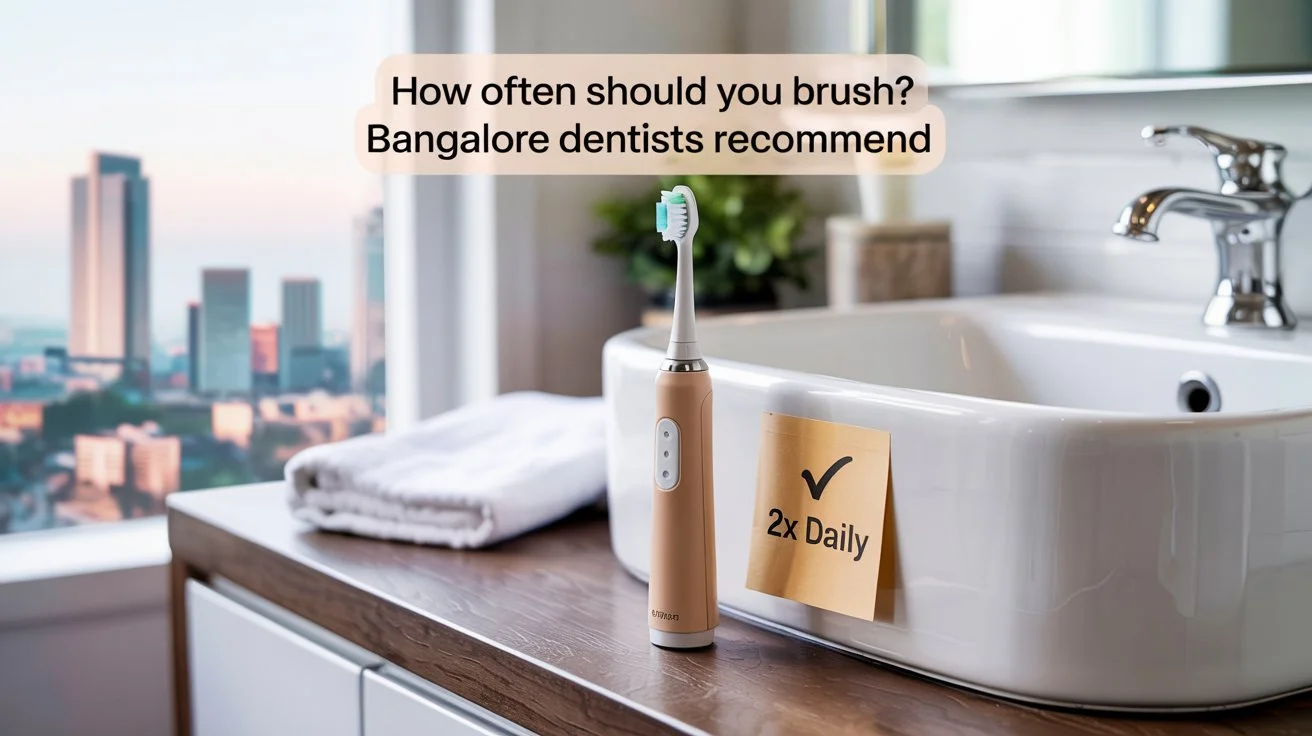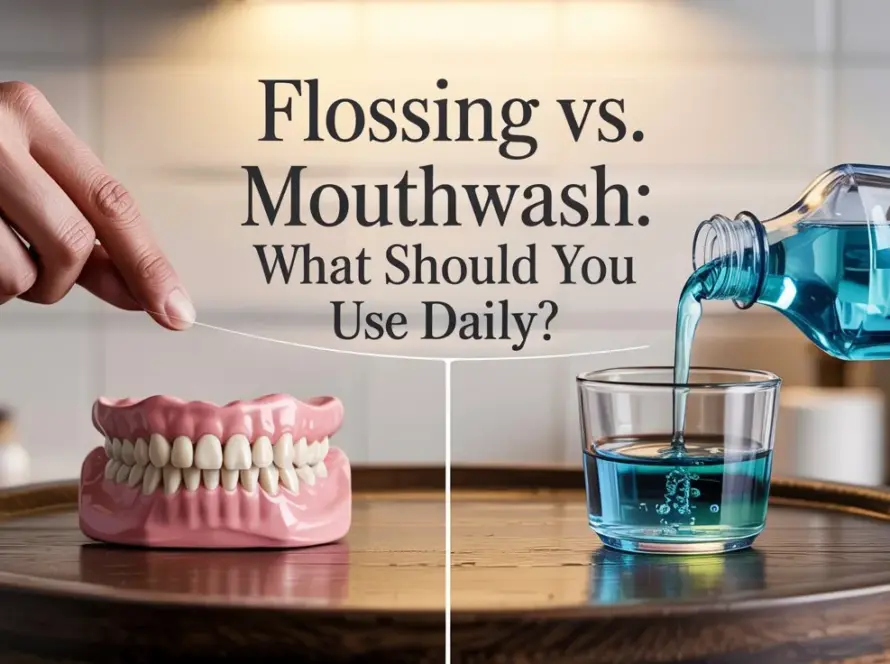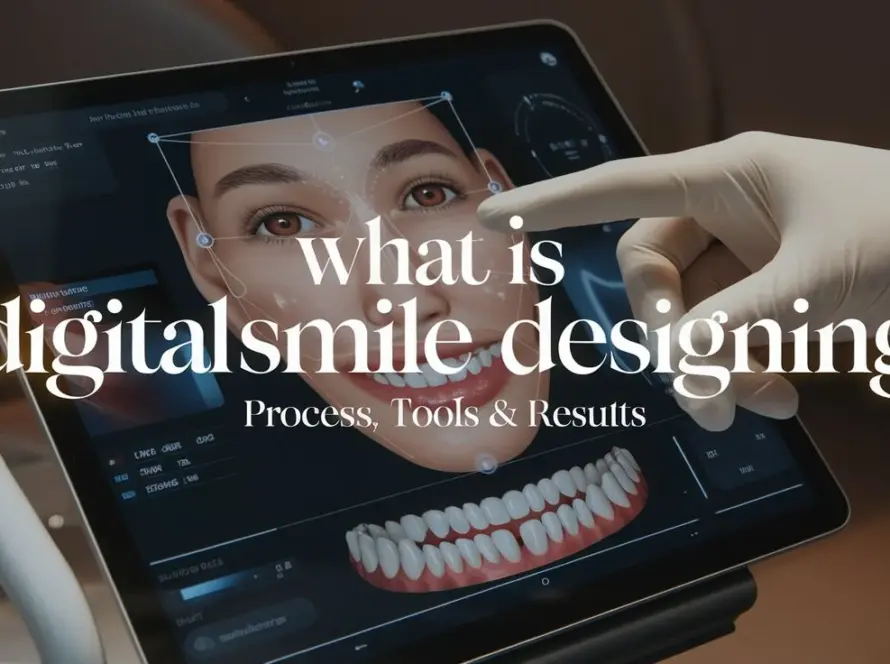Maintaining a clean, healthy mouth goes beyond just flashing a bright smile. In a city like Bangalore — where busy schedules, sweet filter coffee, spicy meals, and hard water all play a role in dental health — brushing your teeth the right way, and at the right time, is more important than ever. Still, many people are unsure: is once a day enough? Should you brush after every meal? We spoke to leading Bangalore dentists to help answer these questions and more, with down-to-earth tips you can actually follow.
What Happens If You Don’t Brush Often Enough?
Think of your mouth as the front door to your body. Skipping even one brushing session gives bacteria a chance to settle in, multiply, and cause all sorts of trouble — from bad breath to bleeding gums to cavities. Bangaloreans, in particular, face the added challenge of sugary snacks and acidic foods that feed these bacteria.
Not brushing regularly doesn’t just affect your teeth — it can increase your risk for health issues like heart disease and diabetes. It’s one of those small daily habits that has a much bigger impact than you might realize.
Standard Brushing Recommendations by Global Health Authorities
Let’s keep it simple: global experts like the American Dental Association and WHO agree that you should brush your teeth twice a day — once in the morning and once at night. No shortcuts. And each session should last for two minutes, which, let’s face it, feels longer than we think when brushing.
What Bangalore Dentists Say: Local Perspectives
Dentists across Bangalore agree with the global advice but add a bit more context:
- Love masala dosas or biryani? Those spices and oils call for extra thorough brushing.
- Into sweets like Mysore Pak or filter coffee? Sugar means more plaque.
- Relying on borewell water? The mineral content might be affecting your enamel.
- Pollution and dust in the air can dry out your mouth — less saliva means more bacteria.
So yes, while the basics are the same everywhere, our local habits and environment do make brushing even more essential here.
Morning Brushing: Why It Matters
You wake up with “morning breath” for a reason. Bacteria have had the whole night to multiply in your mouth. Morning brushing isn’t just about freshening your breath — it clears out overnight plaque buildup and gives your enamel a fresh coat of protection before breakfast or coffee.
Bonus tip: Brush before eating, not after, especially if you’re having acidic fruits or juices. It keeps the enamel safer.
Night Brushing: The Non-Negotiable Habit
If you had to pick just one time a day to brush, dentists would tell you: make it nighttime. After a full day of meals, snacks, and drinks, your teeth deserve a proper clean before you sleep. Night brushing removes food debris and protects your gums from the bacteria that thrive in a dry, inactive mouth overnight.
Plus, you’ll wake up with less intense morning breath — and that’s always a win.
Should You Brush After Every Meal?
It sounds ideal, but brushing after every meal isn’t always necessary — or convenient. And brushing immediately after acidic foods (like citrus or soda) can actually damage softened enamel.
What’s a good middle ground? Rinse your mouth with water or chew sugar-free gum. And if you can brush later — say after 30 minutes — go for it.
Brushing Frequency for Children in Bangalore
Kids in Bangalore are surrounded by tempting snacks — from sugary biscuits to colorful candies. Brushing twice a day is non-negotiable. But it also needs to be fun. Turn brushing into a game, use kid-friendly flavors, or let them pick out their toothbrush. These small efforts go a long way in forming habits that stick.
Special Scenarios: When You May Need to Brush More Often
Some people need to go the extra mile:
- Braces or aligners? Brush after every meal — even snacks — to prevent plaque buildup around brackets.
- Pregnant? Hormones affect gum health. Dentists may suggest brushing three times a day.
- Smoker? Midday brushing helps with staining and odor.
- Diabetic? Twice-a-day brushing is essential to prevent gum complications.
Can You Brush Too Much?
Yes, you actually can. Brushing more than three times a day, or brushing too hard, can wear down your enamel and irritate your gums. Gentle, short, and circular motions with a soft-bristled brush are all you need. More effort doesn’t always mean better results — especially with teeth.
Ideal Brushing Duration and Technique
Two minutes. That’s the golden rule. Divide your mouth into four parts and spend 30 seconds on each. Move the brush gently in circles, holding it at a 45-degree angle to the gums. Don’t forget your tongue and the inside surfaces.
Pro tip: Electric toothbrushes do a great job and often come with built-in timers. Great for kids — and adults who tend to rush.
Should You Rinse Right After Brushing?
Many of us were taught to rinse our mouths immediately after brushing — but dentists say it’s better to wait. Rinsing washes away the fluoride that’s working to protect your enamel. Instead, just spit out the foam and hold off on rinsing or drinking for at least 20 minutes.
It might feel weird at first, but your teeth will thank you.
Impact of Bangalore’s Water Quality on Oral Health
Depending on where you live in Bangalore, your tap water might have higher levels of fluoride or hardness (minerals like calcium and magnesium). This can either help protect your teeth — or cause cosmetic issues like dental fluorosis.
If you’re concerned, use a fluoride toothpaste suited for your age and condition, and talk to your dentist about water filters or fluoride-free alternatives for young kids.
Complementing Brushing with Other Oral Hygiene Habits
Brushing is just the beginning. A complete oral hygiene routine includes:
- Flossing (once a day)
- Mouthwash (preferably alcohol-free)
- Tongue cleaning (daily)
- Oil pulling (optional, but popular in Ayurvedic tradition)
These simple add-ons can make a huge difference — and they only take a few extra minutes.
Recommended Toothpastes by Bangalore Dentists
If your teeth are sensitive, your toothpaste should be gentle. If you’re prone to cavities, fluoride is a must. Herbal options are great — but make sure they’re clinically backed.
Dentists in Bangalore often suggest:
- Colgate Total or Colgate Sensitive
- Sensodyne for sensitive teeth
- Dabur Herbal or Himalaya Complete Care for natural options
Always look for the seal of approval from dental associations.
When to Replace Your Toothbrush
Your toothbrush isn’t meant to last forever. Replace it every 3 months, or sooner if:
- The bristles are frayed
- You’ve been sick
- The brush feels less effective
A worn-out brush just pushes plaque around instead of cleaning it off.
Dental Checkups and Professional Advice
Even if you’re brushing like a pro, don’t skip your dentist visits. Bangalore dentists recommend checkups every 6 months. They’ll do a thorough cleaning, check for early signs of trouble, and give you tips tailored to your needs.
If you’re using public water, eat a lot of acidic foods, or smoke — regular checkups become even more important.
Conclusion
So, how often should you brush? The answer is simple: twice a day, every day. Morning to prep your mouth for the day, and night to clean it before sleep. If your lifestyle demands more, adjust accordingly — but consistency is what truly counts.
In a bustling city like Bangalore, where food, environment, and pace of life all impact your oral health, a solid brushing routine is a small habit that brings big benefits. Stay consistent, be gentle, and don’t forget to smile — you’re doing something great for your health.
FAQs
-
Is brushing once a day enough?
Twice a day is best for plaque removal and gum health. Once is too risky in the long run.
-
Should I brush right after meals?
Not always. Wait 30 minutes if the meal was acidic. Otherwise, brushing is fine.
-
Can I use herbal toothpaste daily?
Yes — just make sure it contains fluoride or offers similar protection.
-
What if I have sensitive teeth?
Use a desensitizing toothpaste like Sensodyne and avoid aggressive brushing.
-
Are electric brushes better?
In many cases, yes. They clean more effectively and are especially helpful for kids and seniors.
-
What time should I brush at night?
Right before bed — after your last meal or drink, except water.
-
Should I brush my tongue too?
Yes! It reduces bacteria and improves your breath.
-
Is overbrushing bad?
Yes. It can damage enamel and irritate your gums. Brush gently, not forcefully.
-
Does bottled water affect my brushing needs?
Sometimes. Bottled water often lacks fluoride, so your toothpaste needs to make up for that.
-
Can I skip brushing once in a while?
You can — but it’s not worth it. Plaque builds up fast. Make brushing as routine as your morning chai.



